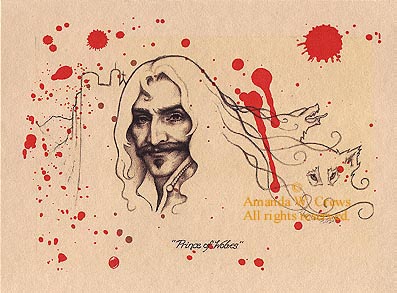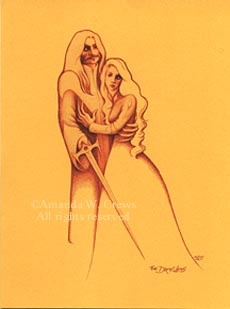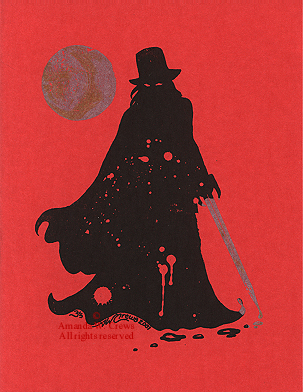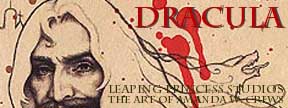  In 1897, Bram Stoker published Dracula, a fabulously entertaining horror story of a vampire's blood-thirsty attack on the good, God-fearing citizens of England. That story has been copied and re-written perhaps thousands of times, most notably, as a stageplay. That play was then adapted for theatrical release in 1931 in one of its most endearing and enduring forms, directed by Tod Browning, starring the unforgettable Bela Lugosi as the Count, and featuring Helen Chandler, Edward Van Sloan, and Dwight Frye. Lugosi's Dracula is a classic, and though it has been both revered and spoofed, it continues to fascinate new generations. In 1999, Universal re-released this classic with a new soundtrack. With no disrespect to the musicians, the mix is heavy-handed, and, worst of all, does not include Tchaikovsky's "Swan Lake", which seems an integral part of the original movie. In my opinion, the only other film version to hold a candle to Lugosi's is Francis Ford Coppola's 1992 "Bram Stoker's Dracula", starring Gary Oldman, intense as the undead count, and featuring loveable Winona Ryder and irrepressible Anthony Hopkins. Coppola's version more closely resembles the original Stoker book, while serving to introduce the historical Vlad Dracula. As Stoker is known to have been inspired by a Romanian historian of his day, this aspect is not out of line with the story. The fictional Count pales beside his very real, flesh and blood Wallachian warlord counterpart from the 15th century. Vlad III was born in 1431 (by point of reference and interest, the same year that Jeanne d'Arc was burned at the stake). His father was Vlad Dracul, "The Dragon", referring to his membership in the knightly Order of the Dragon; by birthright, Vlad III became known as Vlad Dracula, "Son of the Dragon". As he grew older, he also became known in his own region as Vlad Tepes (pronounced "Tsepesh"), "The Impaler". He was known for his draconian justice and named for his favoured method of execution. His life history is at once both fascinating and apalling; and I highly recommend reading anything on the subject by Radu R. Florescu and Raymond T. McNally. Not much is written in our english history books about this Prince who ruled with an iron fist, but he is still revered as a national hero by the people of his homeland. While frequently portrayed as bloodthirsty, cruel, and even insane, his actions were almost always politically motivated and shrewdly calculated. Vlad Dracula was first imprisoned by his father's enemies, the Turks, at the tender age of eleven. He spent six years in their captivity. He later ruled Wallachia as Prince during three separate reigns, the greatest beginning in 1456, announced by the arrival of the Great Dragon Comet (later to be named Halley's) across the night skies. That reign ended in 1462, under attack from his own brother, Radu, leading the Turkish army; and with the death of his unnamed wife, who flung herself from a tower of the castle into the depths of the Arges River, rather than be taken prisoner by the encroaching army. Dracula, himself, was captured while in retreat, by the Hungarian army on the other side, beginning his last and longest (12 year) imprisonment. He was killed in battle at the age of 45, once again defending the city of Bucharest and the island monastery of Snagov from the invading army. It is said that his decapitated head was impaled on a stake, and presented to his enemy, the sultan, as proof that the Impaler was finally dead. It is believed by some that Dracula's body was buried at Snagov. Early in the 20th century, a headless skeleton was reportedly exhumed there, dressed in crimson and gold brocade, draped in purple silk, a broken ring pinned in the clothes, and a crown of cloisonné claws bearing turquoise stones placed where the skull should have been. In an unfortunate attempt to safeguard the remains during World War II, the City of Bucharest History Museum used convicts to move the artifacts to another location, and the body simply...disappeared. As legend would have it, the Prince, like King Arthur, lives eternally on the Island of the Lake, waiting and watching over his homeland, until its hour of need. |
 |

"Prince of Wolves"
by Amanda W.
Crews
copyright 1998

"The
Draculas"
by Amanda W. Crews
copyright
1995
Note cards, 4 1/4" x 5 1/2", with envelopes
Set of 6 for $10.00

"Mina I: Across the
Arges"
by Amanda W. Crews
copyright
1996

"Dark Knight"
by
Amanda W. Crews
copyright 2001
Hand-printed Halloween cards.
Black, gold and silver print on red stock
with goldenrod liner, red printed greeting
("Happy Halloween!")
and orange envelopes.
SORRY, THIS ITEM IS NO LONGER AVAILABLE.

FAVOURITE DRACULA LINKS:
DRACULA: between myth and reality by Adrian Axinte
The Historical Dracula by Ray Porter, 1992
The Bram Stoker's Dracula Drinking Game
(Who needs complicated rules?
If you just take a
sip when anyone says
the name "Mina", that should be sufficient!)
Dark Prince: The True Story
of Dracula (USA Network)

You are visitor number
(Counter here)
[Home] [Site Map]
[LAKE LADY PRODUCTIONS: The Art of Amanda W. Crews]
[Lake Lady Galleries] [Portraits & Nixies]
[Mina's Castle: The Heart of Leaping Princess Studios]
[The Arthurian Tales] [Beauty and the Beast]
[Rumours on the Edge of 17] [DragonLoch]
[A Mad T Party!] [In Memory of 9-11] [Guestbook]
[Link to us] [Links] [Order Form] [FAQ Page]
[Contact Leaping Princess Studios]
[LAKE LADY PRODUCTIONS: The Art of Amanda W. Crews]
[Lake Lady Galleries] [Portraits & Nixies]
[Mina's Castle: The Heart of Leaping Princess Studios]
[The Arthurian Tales] [Beauty and the Beast]
[Rumours on the Edge of 17] [DragonLoch]
[A Mad T Party!] [In Memory of 9-11] [Guestbook]
[Link to us] [Links] [Order Form] [FAQ Page]
[Contact Leaping Princess Studios]
Original Artwork
copyright 2013
Amanda W. Crews
Lake Lady Productions &
Leaping Princess Studios



